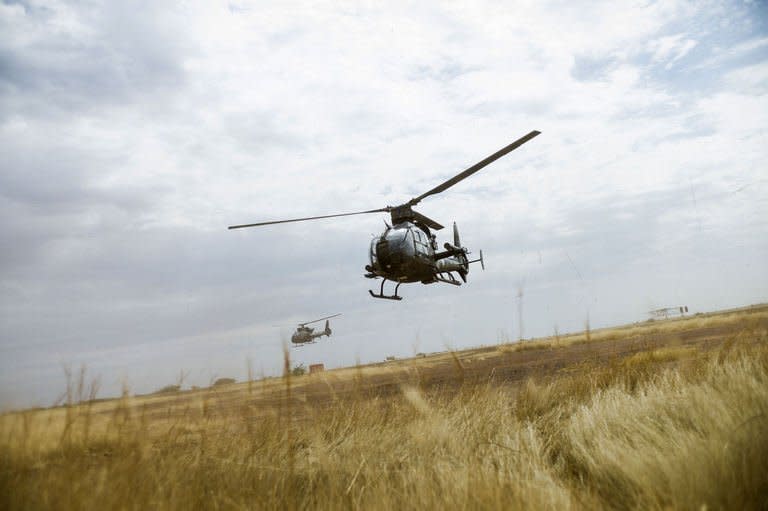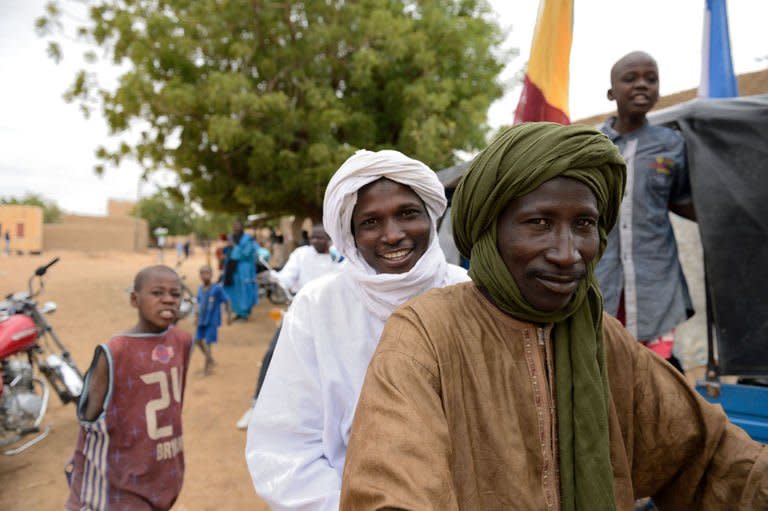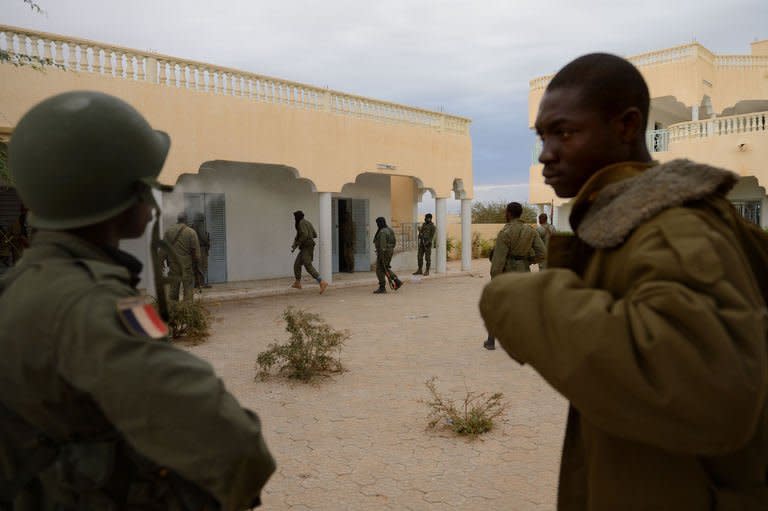French-led troops seize Timbuktu, concern over manuscripts
French-led forces Monday seized Mali's fabled desert city of Timbuktu in a lightning advance north as fleeing Islamists torched a building housing priceless ancient manuscripts. Residents of the ancient city on the edge of the Sahara desert erupted in joy as the French-led troops entered the town, jubilantly waving French and Malian flags after months of suffering under the Islamists' brutal rule. "The Malian army and the French army are in complete control of the town of Timbuktu. Everything is under control," a colonel in the Malian army said on condition of anonymity. Timbuktu Mayor Halley Ousmane, who is in Bamako, confirmed the town had "fallen into the hands of the French and Malians". As his soldiers received a rapturous welcome, French President Francois Hollande declared: "We are winning in Mali." Residents said many occupiers had left several days ago, as French airstrikes rained down on their bases across the north. A French military source said there were fears they could have dotted the city with mines, adding they were in the process of "securing" it. However fears soared for the city's cultural heritage when a building housing tens of thousands of manuscripts from the ancient Muslim world and Greece was set aflame. Mayor Ousmane confirmed the fire at the Ahmed Baba Centre for Documentation and Research which housed between 60,000 and 100,000 manuscripts, according to Mali's culture ministry. The Ahmed Baba institute was set up in 1973. In 2009, a new building was opened following a bilateral agreement with South Africa to promote the conservation, research and promotion of the manuscripts as African heritage. Shamil Jeppie of the Timbuktu Manuscripts Project at South Africa's University of Cape Town said he had no news from the ground but believed some of the most important documents may have been smuggled out or hidden in recent months. But jubilation was the order of the day Monday. "We are independent again! We were held hostage for 10 months but it seemed like 10 years," Hama Cisse, an excited Timbuktu resident, exclaimed. Lahlia Garba, a woman in her fifties, expressed her relief in the city finally being liberated from the hard-line Islamists. "I had to wear a burqa, gloves and cover everything," she said, adding she had suffered from "anxiety and stomach pain" every time she was trapped in layers of cloth. Similar scenes of euphoria have greeted the troops in other key cities they have recaptured in the 18-day offensive which has seen the Islamists flee their 10-month old bastions into the far northern desert hills. But the highlight of the juggernaut has been the recapture of Timbuktu, a town so etched into Western imagination as a metaphor for exotic remoteness, that many never knew it really existed until its seizure by radical Islamists in April 2012 thrust it into the spotlight. The once cosmopolitan town and a centre of Islamic learning for centuries, Timbuktu became a dusty outpost for the extremists, who forced women to wear veils, whipped and stoned those who violated their version of strict Islamic law, and destroyed ancient Muslim shrines they considered "idolatrous". "Timbuktu was built on Islam and Islamic law will prevail here," read slogans written on city walls. -- Stunning French advance into Mali's north -- The advance into Timbuktu, known as "the City of 333 Saints", which lies 1,000 kilometres (600 miles) north of Bamako, comes a day after French and Malian soldiers seized another Islamist bastion, the eastern town of Gao. Gao is the biggest of six towns seized by French and Malian troops since they launched their offensive on January 11 to wrest the vast desert north from the Islamists. Only one Islamist stronghold, the town of Kidal further north, remains to be retaken. France now has 2,900 soldiers in Mali. Nearly 8,000 African troops from Chad and the west African grouping ECOWAS are expected to take over the baton from the French troops, but their deployment has been sluggish with 2,700 split between Mali and Niger. The African-led force will require a budget of $460 million (340 million euros), the African Union said on the final day of its summit in Addis Ababa on Monday, promising to contribute $50 million for the mission. French Prime Minister Jean-Marc Ayrault has appealed for more aid for the Mali effort. A spokesman for British Prime Minister David Cameron said London was "keen" to contribute more in addition to two transport planes and a surveillance aircraft it has already provided. On Monday a French helicopter carrier, the Dixmude, arrived in the Senegalese capital Dakar carrying hundreds of troops as well as vehicles and materiel to be transported to neighbouring Mali.





